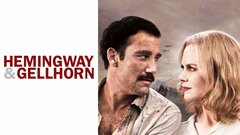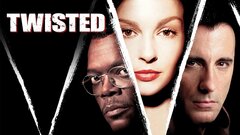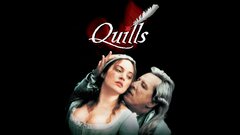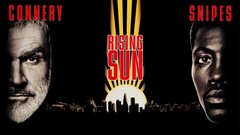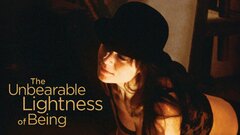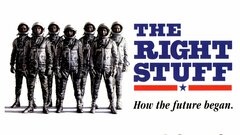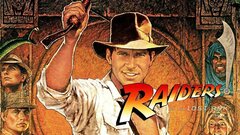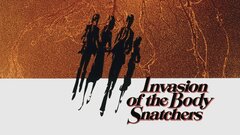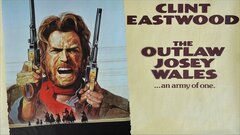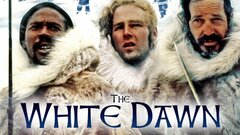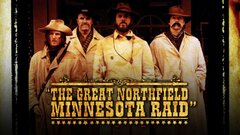A Chicago-born maverick director who has tackled a wide range of projects with consistent intelligence and style, Philip Kaufman shared the Prix de la Nouvelle Critique at Cannes for his first feature "Goldstein" (1964). Based on Kaufman's unfinished novel and co-written and co-directed with Benjamin Manaster, "Goldstein" was loosely based on a Hassidic tale about a old man who mysteriously emerges from Lake Michigan and alters the lives of three Chicagoans and introduced the recurrent theme of hero-worship found in many of the director's subsequent efforts. Despite receiving critical acclaim at Cannes, the film was virtually overlooked when it debuted in the USA.
Kaufman's second feature "Fearless Frank" (1967), was a comic skewering of American movie genres. Featuring a then-unknown Jon Voight and several members of the Second City comedy troupe (Severn Darden, Joan Darling, David Steinberg), this independent film spoofed superheroes, gangsters and evil scientists. While it premiered to good notices at the 1967 Cannes Film Festival under the title "Frank's Greatest Adventure," it was unreleased until 1969 when Voight had become a star thanks to "Midnight Cowboy." Upon its release, Jennings Lang at Universal was impressed enough to offer Kaufman a contract.
His first effort for the studio was the meticulously-researched off-beat Western, "The Great Northfield, Minnesota Raid" (1972), about the unsuccessful 1876 bank robbery attempt by the Younger-James gang. Toplining Robert Duvall and Cliff Robertson, the movie was a revisionist look at America's past, casting Jesse James as a psychopath and Cole Younger as a cunning but sensitive killer. The studio attempted to market the film as another "Butch Cassidy and the Sundance Kid," but Kaufman's approach was darker in tone and when the film failed to find an audience was abandoned by the studio.
Kaufman only directed "The White Dawn" (1974) but he brought a strong visual sense to the tale of three whalers who survive an 1896 Arctic shipwreck and their culture clash with the Eskimos who rescue them. Despite a predictable ending, the film offered strong performances from leads Timothy Bottoms, Louis Gossett Jr and Warren Oates. Nevertheless, the subject matter was not a popular one and the film was not a financial success.
Kaufman had been hired to write and direct "The Outlaw Josey Wales" (1975) with Clint Eastwood starring as a pacifist Southern farmer turned vigilante when his family is killed by Union soldiers. After two weeks of filming, however, Eastwood assumed the directorial reins with Kaufman retaining his screenplay credit (shared with Sonia Chernus).
Kaufman enjoyed his first box-office hit with the 1978 remake of "Invasion of the Body Snatchers," switching the setting to San Francisco and including a number of in-jokes (like casting Don Siegel, the director of the 1956 original, in a bit part). He followed with another financial success, "The Wanderers" (1979), co-written with his wife Rose, about street gangs in 1963 New York. He collaborated with George Lucas on the script for "Raiders of the Lost Ark" (1981) while simultaneously developing what many feel is his magnum opus, "The Right Stuff" (1983). Adapted from Tom Wolfe's best-seller, "The Right Stuff" was a three-hour examination of the creation of the American space program, tracing its origins from Chuck Yaeger's 1947 breaking of the sound barrier to the launches of the Gemini capsules. Some felt that except for the pilots, the characters are presented as cartoonish, yet despite its length, the film does not feel padded and is not boring. Despite its eight Oscar nominations (including Best Picture, although oddly none for Kaufman's direction or script) and four wins, "The Right Stuff" also proved to be less than successful at the box office.
Kaufman scored another succes d'estime with his adaptation of Milan Kundera's non-linear novel "The Unbearable Lightness of Being" (1988). More Continental in feel than his previous work, Kaufman distilled the novel to a romantic triangle set against the Soviet invasion of Czechoslovakia. He elicited strong performances from his leads Juliette Binoche, Lena Olin and Daniel Day-Lewis (although some critics felt the actor was too young for the role). The film also crossed over from art-houses partly because of the tastefully done but explicit love scenes and seemed a warm-up for his next effort.
"Henry & June" (1990), adapted from Anais Nin's erotic diaries of her relationships with Henry Miller and his wife, was a major factor in prompting the MPAA to create a new NC-17 rating for explicit--but not pornographic--material. Although employing the stylings of a European art film, Kaufman stumbled somewhat in his approach to the material although stars Fred Ward and Uma Thurman delivered fine portrayals of the title characters.
Three years later, the director tackled more mainstream material adapting Michael Crichton's novel "Rising Sun" (1993). Although streamlined, the adaptation resulted in a confusing denouement that inspired incredulity. Despite his obvious gifts, Kaufman spent the remainder of the decade in development hell, attempting to find financing for several intriguing projects including a film based on Caleb Carr's novel "The Alienist" and a biopic of former CIA counterintelligence chief James Jesus Angleton.
He finally returned to the director's chair for "Quills" (2000), an adaptation of Doug Wright's stage play about the Marquis de Sade's incarceration at the asylum of Charenton. Working with the playwright, Kaufman helped to shape the material and make it more cinematic. The resulting film addressed issues of sexuality and freedom in a blackly comic manner and featured strong performances from stars Geoffrey Rush (as the lascivious de Sade), Joaquin Phoenix and Kate Winslet.

